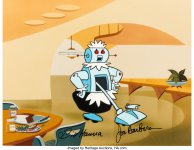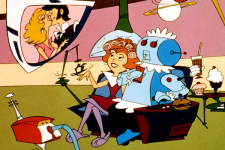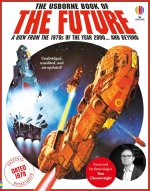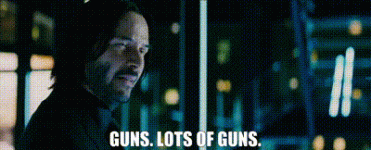Wifetheif
Experienced
- Joined
- Aug 18, 2012
- Posts
- 733
've been re-reading a lot of old science fiction lately. Stuff from the 1950s. One thing everybody got wrong including Heinlein was the idea of blue collar astronauts. In so many stories the guys building the lunar stations the satellites and ferrying the supplies are smart guys who do it more for the glory than the bucks. They receive modest to low pay and work in obscurity while they sacrifice their bodies and souls to the vagaries of space. Old, infirm spacemen, contemplating the end and bemoaning the modern breed of astronaut and insisting that their long.-suffering wives put on their magnoboots after they have had last rights so that they can enter the next wold like a real man. Which, of course, is exactly what happened! Well not really, not even close, aside from the obscurity part. Astronauts and cosmonauts are well paid white collar types who from time to time do blue collar work in space.
The generation that fought WWII transferred the everyday grunts of wartime, the seabees and sappers, to outer space. The only exception I can think of is Arthur C. Clarke whose spacemen and astronauts ware also scientists, not low-wage drudges. There is a lesson fo all of us authors, just because a pattern is established, that does not mean that it will inevitably repeat. Not all gold rushes are the same even if they are all after the same thing. The tulip bubble and the fall of FTX crypto are two very different economic lessons that nonetheless have tons of overlap.
Our imaginations often betray our writing by limiting us. When extrapolating, use a couple of sources of inspiration to hopefully end up with a more rounded story that will stand the test of time.
Aside from blue collar spacemen. What other tropes from the past have failed to materialize? Let's hear them.
The generation that fought WWII transferred the everyday grunts of wartime, the seabees and sappers, to outer space. The only exception I can think of is Arthur C. Clarke whose spacemen and astronauts ware also scientists, not low-wage drudges. There is a lesson fo all of us authors, just because a pattern is established, that does not mean that it will inevitably repeat. Not all gold rushes are the same even if they are all after the same thing. The tulip bubble and the fall of FTX crypto are two very different economic lessons that nonetheless have tons of overlap.
Our imaginations often betray our writing by limiting us. When extrapolating, use a couple of sources of inspiration to hopefully end up with a more rounded story that will stand the test of time.
Aside from blue collar spacemen. What other tropes from the past have failed to materialize? Let's hear them.



